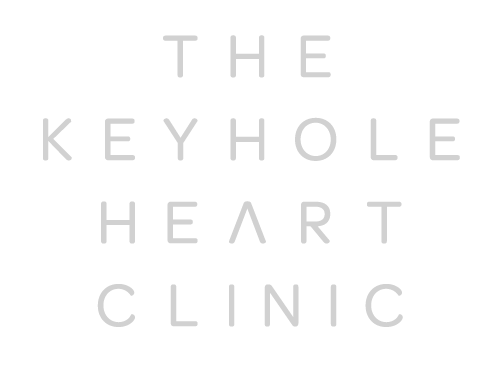How Healthy Is Your Heart?

Keeping your heart in good shape is vital for a long, active life. Engaging in regular physical activity, such as walking or cycling, as well as eating a nutritional diet can have incredible benefits for your heart. But how, exactly, do you know how healthy your heart is? With an external part of the body, like an arm or leg, you can usually feel and visibly see if there is something wrong. However, our hearts rely on a little more care and attention before any problems can be diagnosed. For that reason, it is key to regularly check your heart health and keep it in top condition.
At The Keyhole Heart Clinic, we offer a heart screening service, which can help us to find any irregularities and to check your heart health. With a few simple tests, we can look further into any symptoms or check for congenital diseases if you have a family history. However, if you want to get a head start on understanding your heart health before you book an appointment, there are a few things to look out for.
How To Check Your Heart Health
While you cannot replace the need for a check from a medical professional, there are a few ways to discover how healthy your heart is. Look out for the following signs to check your heart health:
- Heart Rate
It is very easy to check your heart rate by holding your finger on a pulse point and counting the beats within a minute. There are also plenty of technological advancements in phones and watches that can count your heart rate for you. Typically, a healthy resting heart rate ranges between 60 to 100 beats per minute, however, if you train regularly, your heart rate may be as low as 40. Modern digital devices are becoming very accurate at measuring your heart rate automatically. Some devices even record your electrocardiogram rhythm strip (like an ECG). These devices are a superb way to alert you to the possibility that you may have a potentially serious heart rhythm disorder called Atrial Fibrillation.
- Energy Levels
If your heart is in top condition, your body should be getting the blood-borne oxygen and nutrients it needs to fuel you with energy. Alternatively, if you have persistent fatigue, you may want to consider a cardiac screen before assuming that there is nothing wrong with your heart.
- Quick Heart Rate Recovery After Exercise
A key sign of a healthy heart is the ability to quickly rebound to your regular heart rate after intensive exercise. You can test this yourself by taking your heart rate immediately after physical activity and again after resting for one minute. Ideally, your heart rate should have dropped by at least 20 beats 1 minute after stopping your exercise. Less than 10 beats per minute drop after exercise may indicate that your cardiovascular fitness is less than adequate.
- Healthy Breathing
Your ability to breathe comfortably when you are walking at a steady pace is normal. If you get short of breath when you walk especially if on a flat road, then you should see your doctor to investigate the possibility of a cardiac (or lung) cause.
- Chest Pain
You should not normally get chest pain when you exercise. The typical pain of cardiac origin is a dull crushing pain in the centre of the chest which spreads to the jaw or down the left arm. Sometime, cardiac pain feels like indigestion. If you experience these symptoms, especially if associated with breathlessness, clamminess, or palpitations, you should see your doctor.
- Palpitations
Palpitations is the name given to the feeling of jumped heart beats or extra heart beats. These symptoms can be an early sign of heart valve problems, blocked heart arteries, or isolated heart rhythm problems all of which require investigation and treatment.
- Ankle Swelling
If your ankles swell up, especially if you are also short of breath, then you should see your doctor as soon as possible.
- Good Oral Health
This is not always a sign of heart issues, as periodontal disease often results from bacterial infection. However, sore and bleeding gums are sometimes linked to heart disease. Bacteria from your mouth can enter your bloodstream, causing arterial inflammation and plaque build-up, which could double your risk of heart disease.
With these tips on how to check your heart health, you can keep an eye on your heart’s performance and condition. These tips will work for a basic routine at home, but if you feel that you have signs and symptoms that need a second opinion, we are here to help. The Keyhole Heart Clinic team are skilled in providing cutting edge advice on heart health. We are experts in providing heart screening, complete with a blood tests, ECG, and echocardiogram. We also offer other tests if we deem them necessary, like an MRI or CT Coronary Angiography if required. Many of these tests can be performed in one day. Our clinics are based in London, Essex and Nottingham to make access easy for you. If you wish to know more you can look at our various heart screening packages and what they offer here.
And if we diagnose a problem, we also know exactly what needs to be done to fix your heart again. The team at The Keyhole Heart Clinic have been performing keyhole heart surgery for nearly 15 years and are internationally recognised for their expertise. This means that you will be in safe and experienced hands for the smoothest diagnosis possible. If you need any further information on our screening services or how to check your heart health, please do not hesitate to contact us. Let us help you today.

